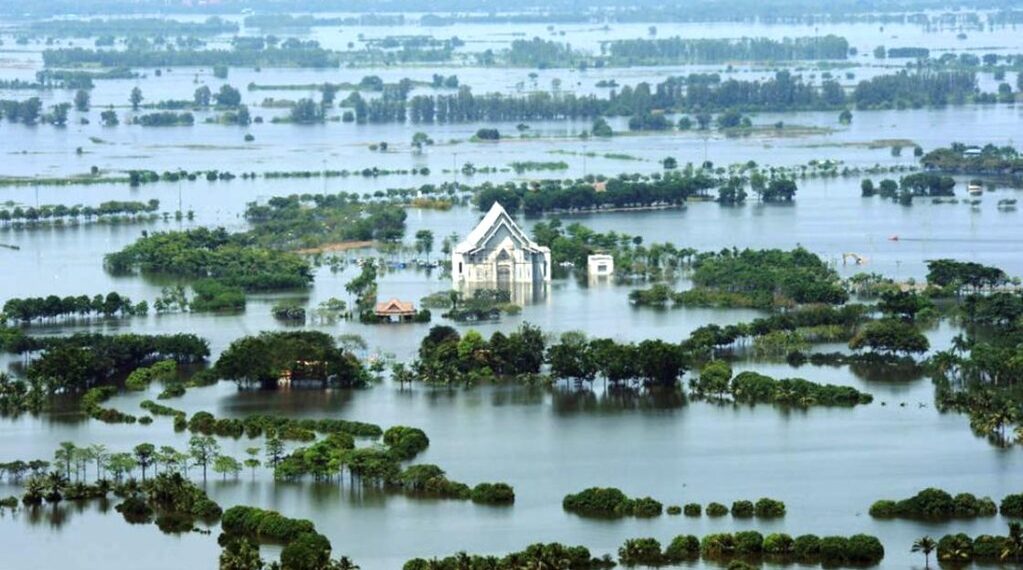No products in the basket.
Thailand is grappling with the economic fallout from a series of devastating floods triggered by tropical storms and heavy rains, particularly in the northern regions. The disaster has impacted major tourist hubs like Chiang Mai and Phuket, leading to significant economic losses.
Key takeaways
- Heavy rains have caused significant damage, with losses in Chiang Rai and nearby provinces estimated at 25-27 billion baht, and potential 2024 losses projected at 46.5 billion baht (0.27% of GDP).
- Nine storms are expected in the Pacific, but it’s unclear how many will affect Thailand. Historically, about 10% enter the country.
- Estimating flood damage is difficult as it impacts both cash flow and fixed assets, despite Thailand’s advantageous location.
Different tourist destinations in the north and center of the country, such as Chiang Mai and Phuket, have been hit hard by the heavy rains.
Economic Impact:
- Initial estimates suggest the first wave of flooding in Chiang Rai and surrounding provinces caused damages ranging from 25 to 27 billion baht.
- Krungsri Research projects total losses from this year’s floods could reach 46.5 billion baht, equivalent to 0.27% of Thailand’s GDP.
- The final economic toll hinges on the government’s disaster management efficiency and the private sector’s ability to protect industrial zones.
The Federation of Thai Industries has estimated the damages, reaching a cost of approximately 25 to 27 billion baht for Chiang Rai and nearby provinces.
Krungsri Research added a projection of losses from the floods in 2024, which could amount to 46.5 billion baht, or around 0.27 percent of the gross domestic product.
Seree Supratid, director of the Climate Change Center at Rangsit University, explained that about nine storms are expected to form in the Pacific Ocean, but it is still uncertain how many of them will enter Thailand and influence the country’s weather.
The expert added that according to historical standards, around 10 percent will enter Thailand, but things may change during 2024.
Adis Israngkura, an economist at the School of Development Economics at the National Institute of Development Administration, indicated that it is difficult to estimate the damages because severe floods usually affect both the cash flow and the fixed assets of the victims.
One of Thailand’s advantages compared to other countries in the region, such as the Philippines and Vietnam, is its geographical location.
Geographical Factors:
- While Thailand is generally less vulnerable to super typhoons compared to Vietnam and the Philippines, it remains susceptible to heavy rains and subsequent flooding.
- The 2011 Great Flood exposed the vulnerability of Thailand’s central plains, prompting multinational companies to relocate factories.
- Bangkok, situated just a meter above sea level, faces a heightened risk of submersion due to rising sea levels.
Future Challenges and Mitigation:
- Experts emphasize the need for improved warning systems and timely evacuations to minimize future losses.
- Land reclamation, dam construction, and relocation of populations from high-risk areas are among the proposed mitigation strategies.
- Funding such large-scale projects poses a significant challenge for the government.
During 2024, heavy rains hit various regions of Thailand, causing millions in losses for several businesses. Thus, in the face of this complex situation, some of the main measures they can take to prevent damage are:
Water-resistant infrastructure
It is essential to invest in infrastructures that can withstand heavy rains. This includes waterproof roofs, efficient drainage systems, and water-resistant construction materials.
Efficient drainage systems
Ensuring that drainage systems are well-designed and maintained can prevent flooding. Drains should be cleaned regularly to avoid blockages.
emergency plan
Developing an emergency plan that includes procedures for evacuation, asset protection, and business continuity is essential. This plan should be communicated to all employees and practiced regularly.
Adequate insurance
Taking out insurance that covers flood damage and other natural disasters can be an important financial safety net. It is crucial to review policies to ensure they cover all possible risks.
Technology and communication
Using technology to monitor the weather and receive early warnings can help make informed decisions. Additionally, maintaining constant communication with employees and customers during extreme weather events is vital.
Discover more from Thailand Business News
Subscribe to get the latest posts sent to your email.













